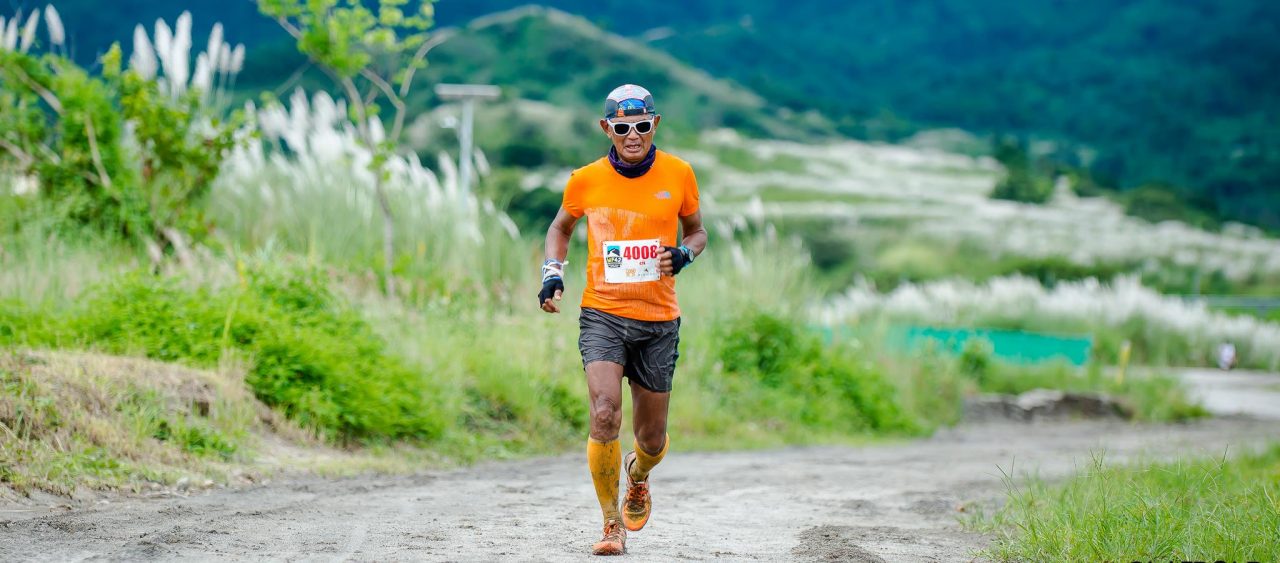While reading the back issue of the magazine “Running Times” dated November 2003, I came upon an article entitled “A Master’s in Marathoning: Choosing the Education of Running” by Mike Tymn. The article stated that running a marathon race is in itself a post-graduate education degree that has a curriculum and subjects to be attended to. For a student who enrolls in this Graduate Studies on Marathon Running, it would take years before he/she could complete or graduate depending on the goal/objective to be attained—to simply finish or finish within a desired time or improve one’s PR or qualify for the Boston Marathon! The following is some of the excerpts from the said article:
The marathon curriculum begins with courses in anotomy, physiology, and medicine. We learn about cardiovascular endurance, anaerobic threshold, oxygen debt, target heart rate, maximal oxygen uptake, running injuries, pronation, supination, to name just a few. The curriculum continues with courses in Physical Education as we are schooled in the principles of adaptation, overload, progression, specificity of training, recovery and rest. We are exposed to interval training, fartlek, LSD, circuit training, stretching, tapering, pacing, peaking and overtraining. We learn about diet and nutrition, finding out what to eat and what not to eat. We are introduced to carbohydrate loading, electrolyte replacement, and proper hydration.
The marathon curriculum includes lessons in psychology, as we must better understand how to deal with problems in goal setting, self-motivation, mood swings, errors in anticipation, regression under stress, and fear of failure. We learn about such things as mental rehearsal, visualization, and self-reward reinforcement.
There are also lessons in planning, time management, and conflict resolution, especially for the runner who is attempting to balance family and occupational responsibilities with the demands of training.
I see the marathon as a microcosmic lesson in life. We learn to commit ourselves to a goal, to discipline ourselves to the demands of that goal, to develop, adapt and evolve, to pace ourselves for both the short and the long haul, to cruise, to struggle, to overcome, to struggle again, to push on, to slowly “die”, (as oxygen is depleted), then to be “reborn” (as we cross the finish line).
There are so many lessons.
We learn that we can work a lot harder than we had ever realized possible, but we also learn that we can work too hard and set ourselves back.
We learn that we can start too fast and never finish, and we can go out slow and never catch up.
We learn that winning or achieving our goals can be fun and fulfilling, but we also learn that winning can bring unwanted pressures and harmful stresses.
We learn that being a poor loser is better than being a poor winner.
We learn that our fiercest rivals can be our best friends.
We learn that success can instill pride, but it can also bring an abundance of humility.
We learn that we can get slower with age but faster with adaptation and experience.
We learn that there are a lot of contradictions in running, just as there are in life, and the key is a balance mixed with just the right amount of patience, persistence and perseverance.
More than anything, marathon running is a course in philosophy, an attempt to answer the essential questions of life. To what end? At what price? The questions and answers are endless.
Whether you are an elite athlete who makes running as your source of income or a competitor who finds challenge in trying to find your body limits or a runner who wants to engage in an active healthy lifestyle, running in itself is a way of life.
So, if you want to graduate in this course of Masters in Marathon, you have to “pay your dues/fees”, study your lessons, do your assignments/homeworks, and above all, pass your quizzes and comprehensive examinations!
(Source: A Master’s in Marathoning: Choosing the Education of Running by Mike Tymn. Running Times Magazine. November 2003. pp. 29-30)

a good point to ponder. however, i don’t know if our running community has already reached that level of maturity to entertain this idea, let alone the time and money necessary to complete this course. but this is certainly a good way to improve the caliber of our elite runners. we can start with our running coaches, who after finishing such a course can then impart their knowledge to the training of our elites. if we gather steam, we can envision setting up a running academy here. seems far-fetched but not an impossible task.
LikeLike
nestor, in due time our runners will mature and stick to the sports we love. thanks for the comment.
LikeLike
Pingback: Priya Rai — красивые сиськи
In running, it is a universal principle that we are all an experiment of one. What works for one may not work for others. Yes, we are united in one common goal, i.e. to reach and cross the finish line no matter what the distance is but somehow we differ on the process how we prepare ourselves for the task.
Some runners need coaches. Others like us started and learnt to run without one. What will be good to know is elite runners imparting their knowledge to us lesser mortals gratis and before they carry their knowledge to their graves. We know some elite runners in their twilight years who prefer to remain quiet and for one reason or another, wittingly or unwittingly, has failed to transmit their knowledge to the running community. There is no continuity. The key to their success dies with them and that is tragic. We have so many things to learn from Japanese, Kenyans, Russians and other runners from other countries. Their coaches are usually former elite runners. Their success speaks for themselves.
This is apt: “We learn that success can instill pride, but it can also bring an abundance of humility”.
Thanks for sharing this to us.
LikeLike
atty jon, nice point. thanks for your comment.
LikeLike